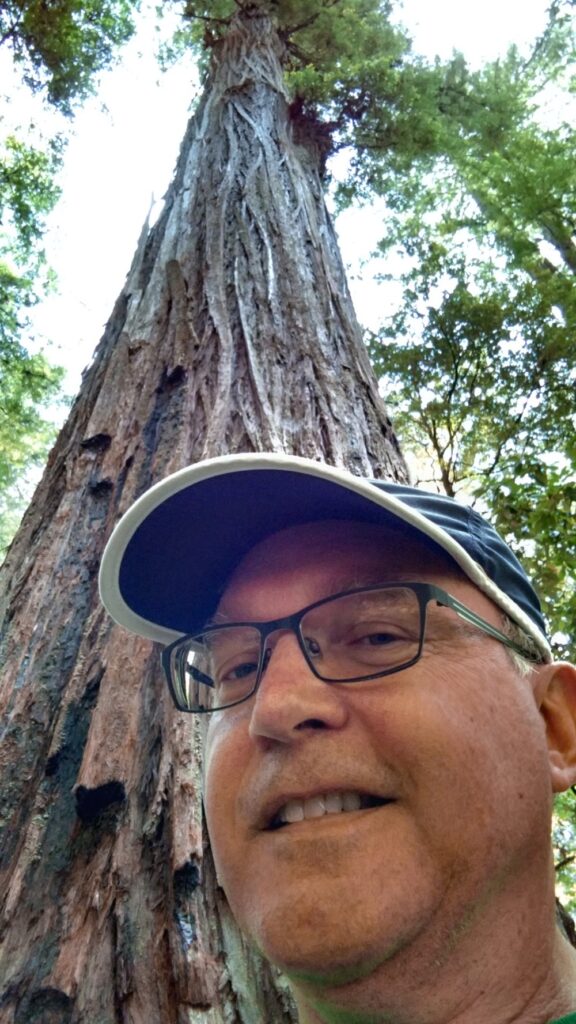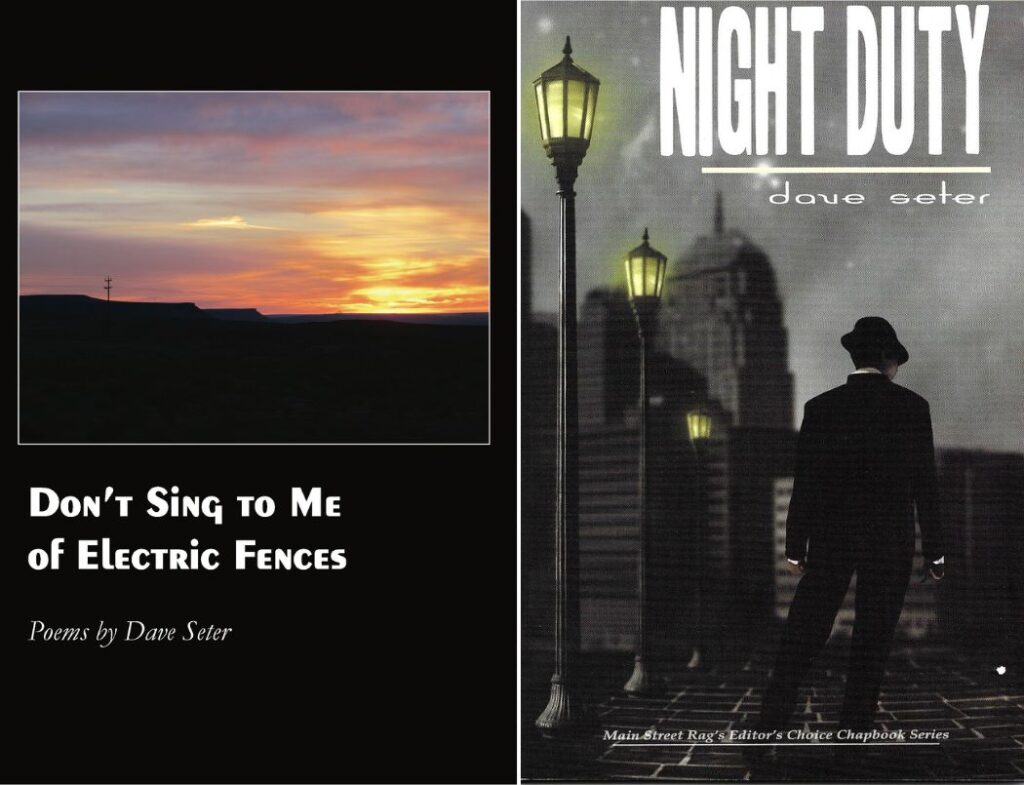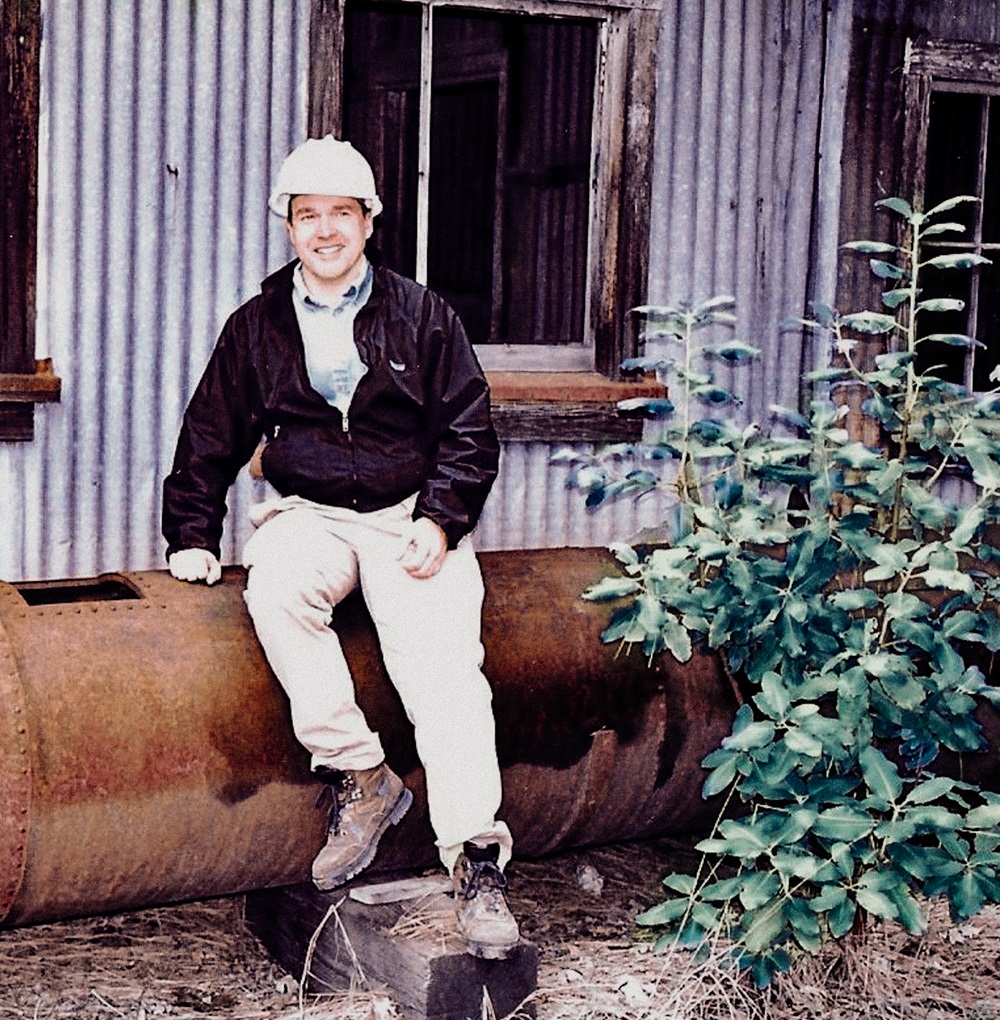Environmental Journey
Dave Seter, Sonoma County’s New Poet Laureate Crafts an Environmental Narrative with Poetry and Engineering
Dave Seter is a civil and environmental engineer, poet, and essayist. Named Sonoma County Poet Laureate (2024-26), he’s the author of Don’t Sing to Me of Electric Fences (2021) and Night Duty (2010), both focusing on social and environmental issues. His work has appeared in Appalachia, Cider Press Review, The Florida Review, The Hopper, Poetry Northwest, and has earned him the
KNOCK Ecilit Prize and two Pushcart nominations. Seter has also been an affiliate artist at the Headlands Center for the Arts and served on the board of the Marin Poetry Center.
Made Local (ML): When did you first understand that you were a poet?
Dave Seter (DS): I daydreamed a lot as a child. I didn’t realize until later that daydreaming is essential to the creative process. So even as a child, I think I was becoming a poet.
ML: The poem “Open Range” describes your interaction with a desert landscape in Idaho. How does landscape and place factor into your work?
DS: I have a strong sense of place. Sensory details, whether visual or olfactory, stay with me. When I’m in a new place, I can’t help writing about what moves me about that place. In the case of “Open Range,” it was a steer in the middle of the road who wouldn’t let me pass.
ML: Your translations of Lithuanian poetry have appeared in Los Angeles Review and Alchemy Journal. How did you become a translator?
DS: I became a translator while living alone during the pandemic. I wanted to connect with my Lithuanian heritage. But I also wanted to connect with living poets across the sea, which somehow gave me comfort that there was life out there in the world. Even if at times it felt as far away as the moon.
ML: You work in the field of environmental protection. How has that inspired your work? Where do you find your poems?
DS: I was a child when the Cuyahoga River in Ohio was so polluted that it caught fire. I was outraged. Most of my poems about the environment stem from a sense of injustice. Or from wanting to speak out for an ecology that doesn’t have the words to express itself.
ML: You’re a co-producer of the Petaluma Poetry Walk (along with myself and poet Bill Vartnaw) which is happening Sunday, September 15 this year. Tell us what people can expect from this year’s lineup.
DS: Our team has assembled an incredible lineup of poets, who, I’m proud to say, span the generations, proving that poetry’s legacy will continue. We will have poetry and music, poetry and dance, and just plain poetry with which to entertain audiences.
ML: What will your projects be as Poet Laureate?
DS: I plan to build upon California Poet Laureate Lee Herrick’s “Our California” project. Our Sonoma County will ask us to share our personal histories with the goal of achieving a poetry of inclusion. Because my mom was a part-time library assistant for 30 years, libraries are close to my heart. That’s why I plan to conduct workshops throughout the county library system.
Below is a poem by Dave Seter set at Glen Oaks Ranch in Sonoma, which originally appeared in California Quarterly.
Reborn at Glen Oaks Ranch
The tractor that pushed the dirt around
now rusts away without complaint,
its diesel heart quieted.
Its itchy, iron-rich body of steel
flakes skin back onto the soil, into the soil,
where, far beneath rests rock ore,
earth’s core from which the iron came,
disassociated by the miner, reassociated now.
Welcome back, the earth is welcoming,
without complaint, welcomes us all back
to our elemental selves—we are a family of iron.
From earth we came and we will return
to the worms, to the birds who eat the worms,
the very same birds the bulldozer pushed aside,
blade upturning oak and chemise.
Trees nod as if knowing the earth still turns,
but not knowing, tractor, woman, man,
when we will finally return.
daveseter.com | IG @daveseter_ecopoet
Don’t Sing to Me of Electric Fences is available on Bookshop.org and Amazon



